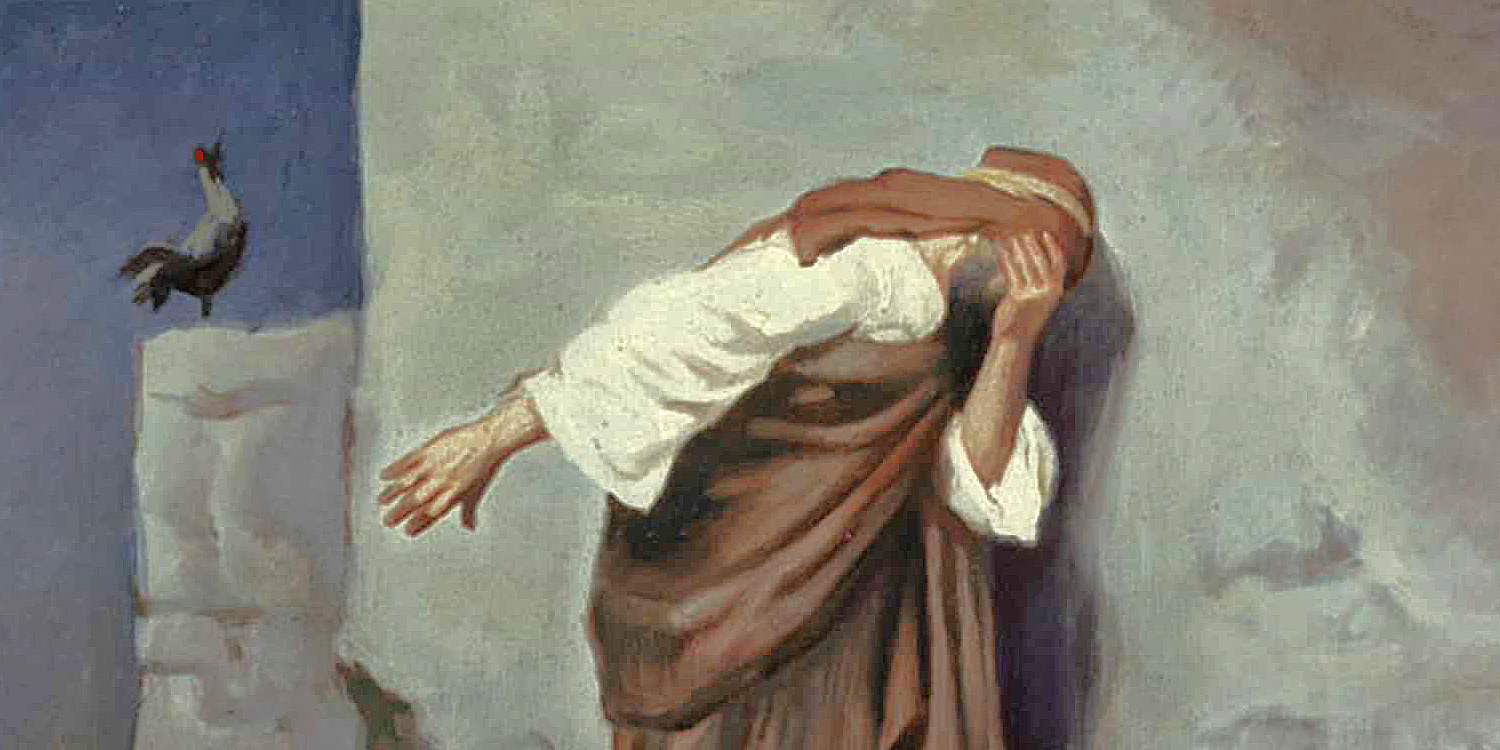
The disciples of Jesus had one job: to follow their rabbi-Messiah wherever he went. It’s what disciples do. Jesus taught and performed miracles, gaining fame and garnering controversy. He asked his disciples who they thought he was, and Peter (the impetuous) won the pop-quiz — he was the Messiah. But then Jesus’ demeanor seemed to take a dark turn. This paparazzi-lined tour of Galilee would end in his death, Jesus said, and he expected his devoted disciples to be with him till the end (Mk 8: 31-38). Peter (the impetuous) protested. The Messiah wasn’t supposed to die. He was supposed to kick out the Romans and reign forever.
To the disciples’ surprise, these “fishers of men” must also take up their crosses, losing their lives to find them. It all began so gloriously, but it would have an inglorious end. Following Jesus meant joining him in a shameful, painful death. The only way to life was through death, the only way to resurrection was through a cross.
On the night he would be arrested, Jesus took the disciples to the Garden of Gethsemane and revisited the topic of his and their appointments with death. But this time, the roles were reversed. In defiance of Jesus’ predictions, Peter protested he had learned his lesson and would not fall away when the hour came. The rest of the disciples agreed — they would all die with him as martyrs for the cause. Jesus knew better: their spirits were willing, but their flesh was weak. They were unable to do what he alone could. He cited the prophecy of Zechariah to them: “Strike the shepherd, and the sheep will scatter.”
When the expected hour came, the disciples had the spines of a jellyfish — just as Jesus said they would. They fled for the hills at the first sign of trouble. The disciples had one job, and they failed miserably. It’s not as though they didn’t know better or weren’t prepared — were just unable to do what was required. It was inevitable. They wanted to be faithful, but their capacity to do so was absent.
But the disciples also failed because they were supposed to. Their sin was foretold by Zechariah. Pushing this point further, in the Gospel of John Jesus demands that the disciples not be arrested with him “to fulfill the word that he had spoken: ‘Of those whom you gave me I have lost not one.’” From the eyes of the disciples, it was an utter disaster, a betrayal of their beloved friend and God. From the eyes of Jesus, it was all precisely how it should have been.

The events of Maundy Thursday were tragic. And yet even the disciples’ colossal blunder is enveloped in the purposes of Jesus. In this brief narrative we are offered a small window into the hidden things we blindly grasp at. In the Garden of Gethsemane, human sin and divine action are strangely intertwined. Apostasy and divine providence are mysteriously coextensive with one another. Seemingly destined to fail, their sin was not an obstacle to God, but the very means by which He redeemed.
If it’s true of the disciples in this their darkest hour, then it must somehow be true of us and our own failures and ineptitude. Jesus’ first disciples were feckless deserters, and by all accounts things haven’t changed much since.
Amid the chaotic whirl of everyday life, it can seem as though inadequacy and shame are all there is. Maybe this Maundy Thursday you feel overwhelmed by sin and limitations. Your life isn’t what you dreamed it’d be. You tried, but you didn’t “make it.” Or maybe the slow grind of Covid life has taken its toll, somehow waking up every morning tired and stressed. The project you thought you’d have finished is still on the to-do list. The friend you wanted to reconnect with still hasn’t been called. As much as there is a desire for things to be different, the flesh is still weak. Despite our best intentions, there remains a gap between the ideal and reality. Pointing fingers at ourselves and others, our eyes only glimpse disarray: wrongs to be righted or regrets of how things might have been.
But the eyes of Jesus do not see our sin or imagined paths not taken. Our savior only sees his own providential hands at work for redemption. How the chaos of life and our frailty might be resolve in the end is so often a genuine mystery, but we are not the authors of this story. Somehow, the worst things to have happened are precisely how it should have been. Somehow, the mundane disorder of life is enough. Our sins may be inevitable, but that doesn’t make them irredeemable.

COMMENTS
3 responses to “Destined to Fail”
Leave a Reply













This is so comforting. Thanks, Todd. I especially identify with,
“The project you thought you’d have finished is still on the to-do list.” ????
[…] Destined to Fail: Sin and Providence on Maundy Thursday […]
[…] Destined to Fail: Sin and Providence on Maundy Thursday, by Todd Brewer […]